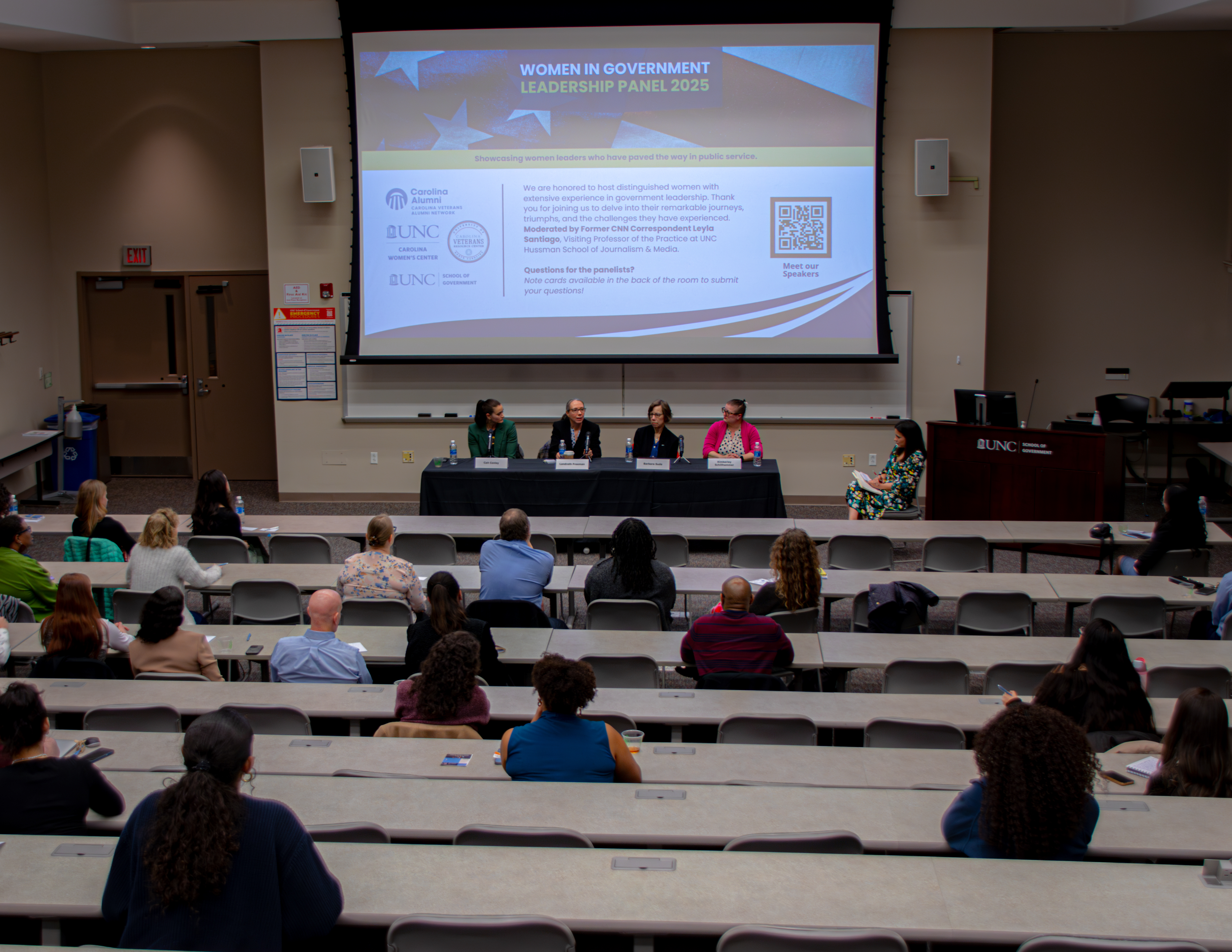School of Government hosts Women in Government Leadership panel
Attendees gathered on March 4, 2025, at the School of Government to hear from a panel of women in government leadership roles. Sponsored by the School, Carolina Veterans Alumni Network, and Carolina Women’s Center, the panel featured four accomplished leaders who have made significant contributions to public service.
This event, open to the public and moderated by former CNN Correspondent and UNC Hussman School of Media and Journalism Visiting Professor of the Practice Leyla Santiago, convened leaders from various government sectors to share their experiences, challenges, and insights. Attendees heard as the group spoke on navigating their careers in government leadership as women. After the panel, panelists and attendees gathered in the Knapp-Sanders atrium for further fellowship and dialogue around the subject.
The panelists included:
- Cait Conley, Senior Advisor, Cybersecurity and Infrastructure Security Agency
- Landreth Freeman, Retired Federal Government Officer, US Intelligence Community, UNC-Chapel Hill alumna
- Kimberley Schillhammer, Veterans Service Center Manager, US Department of Veterans Affairs, UNC MPA alumna
- Barbara Sude, Retired Senior Analyst, Central Intelligence Agency
When asked what it means to be a woman in government leadership, Conley responded that her focus has always been on harnessing her skillsets to serve as a leader, not her gender.
“I never identified as a woman leader in government, just a leader,” she said. "I wasn’t there because I was a woman, just the best person for the job.”
Schillhammer spoke to the audience of the need for women in service to take risks in their careers—and trust that a new, unfamiliar opportunity is one worth taking.
“Take opportunities when given to you and find the right champion for you,” she advised. “When someone thinks something is a good fit for you, take them up on it.”
Freeman concurred. “Take an interview—even if you don’t think it’s right for you,” she said.
Freeman further discussed the need to develop new skilled government workers truly dedicated to public service; for her, this is imperative to ensuring the necessary work of governance is achieved.
“People don’t go to work for the government to get a pension,” she said. “The work of government isn’t going away—and we need really smart people to take those positions.”
Conley agreed with Freeman’s sentiment that even when the public sector faces scrutiny and challenges, its public utility does not wane.
“Governance is a global phenomenon because it plays a crucial and unequal role in community delivery.”
Sude counseled the crowd that leadership in government is difficult; often, she said, setbacks and challenges happen. She spoke, however, of the need to embrace the inevitability of these challenges as a leader—and to accept failure as an invitation to grow as a public servant.
“Working in government—you will be frustrated. Accept the frustration,” she said. “You will have an adventure you can’t even imagine. You never know. It’s all interesting.”



